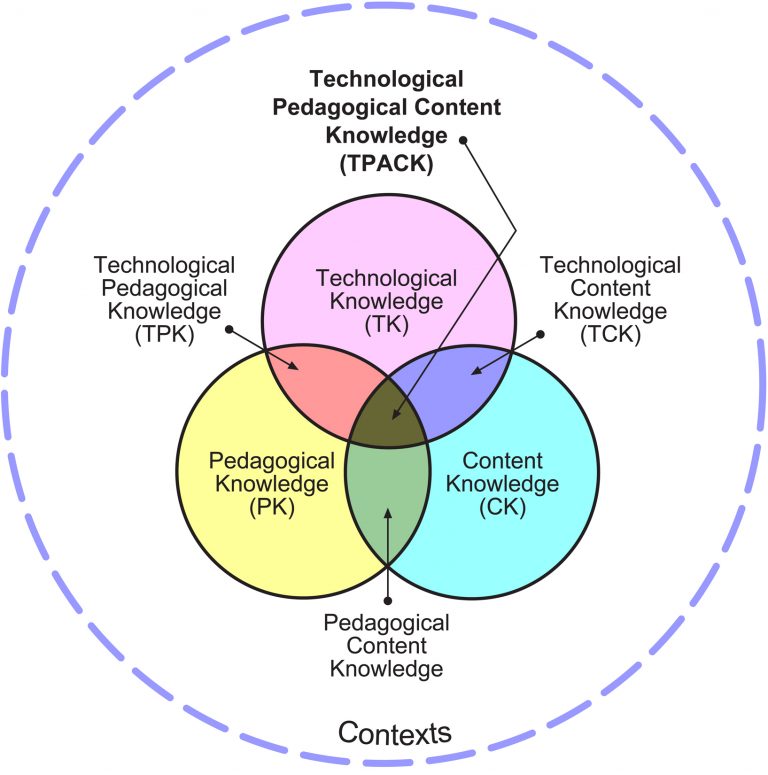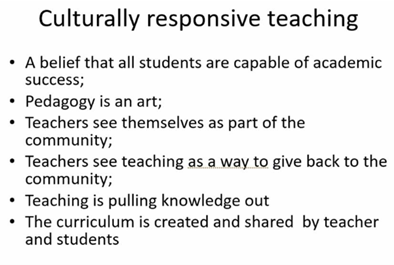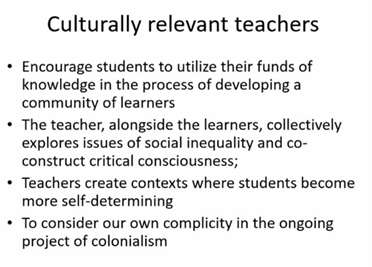My Definition of Ed Tech
Educational technology: the use of technology (not necessarily digital technology, but any technical knowledge, technique, craft, or process) to facilitate, support, or enhance learning.
Connections to Historical & Philosophical Foundations of Ed Tech
In Bates’ short history of educational technology, he outlines oral communication technologies including oral tradition, speeches and recitative poems, chalkboards, overhead projectors, electronic projectors, audio and video conferencing, and webinars. Although these are not all digital tools, they all count as “ed tech” because they all require technical knowledge, technique, or craft to facilitate learning.
Similarly, in her post, Jacquie explains that we often (maybe unconsciously) privilege new, digital, 21st-century tech tools over technologies like oral tradition and storytelling, which Indigenous peoples have been using for teaching and learning since time immemorial. She writes:
“What if educators and institutions continue to find a way to balance all types of technology in our classrooms? I contend diversifying and incorporating all types of technology not only models to students the diverse ways of thinking, being and knowing it also gives more breadth and depth to our experiences with the content.”
Jacquie Murray
Newer tech doesn’t automatically lead to better teaching and learning experiences. To effectively integrate ed tech, we need:

Technical knowledge (how to use the technology/tool)
Content knowledge (what you are teaching)
Pedagogical knowledge (how to teach it)
“TPACK model” (CC BY-NC 2.0) by GeoBlogs
Theories of Knowledge & Learning that Inform my Practice
These are some of the main learning theories that underpin my teaching philosophy and classroom practice:
Constructivism – we construct meaning based on our experiences and interactions with people and the environment
Connectivism – we learn by nurturing and maintaining connections to people, networks, and organizations
Anti-oppressive education – we must actively work against systems of oppression (racism, sexism, heterosexism, classism, ableism) in schools, center marginalized voices, and enable learners to work against injustices in their lives and communities
Culturally relevant/responsive pedagogy – rests on three criteria: students experience academic success; students develop and/or maintain cultural competence; and students develop critical consciousness (Ladson-Billings, 1995)
Technologies of Power
I see the need for anti-oppressive education and culturally responsive pedagogy when I reflect on Foucault’s ideas of technologies of power and the way that particular tools bring about particular behaviours as a way to erase themselves or control things in invisible ways.

Katia explained the idea of the Panopticon and how what matters is not that the inmate is actually being watched by a guard, but that they are aware of being constantly visible, which leads to self-surveillance (or what Foucault calls governmentality).
Panopticon Prison
Blue Ākāśha, CC BY-SA 4.0 https://creativecommons.org/licenses/by-sa/4.0, via Wikimedia Commons
Technologies of power lead to self-surveillance but also to our surveillance of each other so that everyone is observing everyone else, having absorbed the idea that we have to behave in certain ways. Foucault’s metaphor of the Panopticon aligns with Postman’s idea that technologies tend to become mythic, which means they become so ingrained that we no longer think about where they came from or the effects they have. Postman warns,
“When a technology become mythic, it is always dangerous because it is then accepted as it is, and is therefore not easily susceptible to modification or control.”
Neil Postman, Five Things We Need to Know About Technological Change
We have to be aware that technology creates particular environments and behaviours just by existing; we must critically reflect on how the technology we use affects our classrooms and students.
How My Beliefs Have Shifted
I am going into my sixth year of teaching this fall. Although I had background in constructivism, connectivism, and anti-oppressive education in my undergrad, as a new teacher, I felt a lot of pressure as a new teacher to use behaviourist methods and develop a more authoritarian style of classroom management. I found it difficult to structure effective collaborative learning experiences for students and struggled to align my teaching philosophy with the realities of classroom life.
It took some hard years of growing and learning before I felt like I was able to align my pedagogical beliefs with my classroom practice, and it’s still a work in progress! Here are some of the things I’ve learned along the way:
- I can care deeply about my students and their personal wellbeing and maintain high expectations and hold them accountable to those expectations.
- Students often need structure and learning scaffolds to be successful in cooperative and collaborative learning experiences.
- The value of team-teaching and collaborating with colleagues to learn from each other and support mental health and wellbeing.
- The value of social media and my PLN for learning from BIPOC and hearing diverse perspectives on current events and social justice issues.
- The importance of building relationships with students, families, community members, Elders, and Knowledge Keepers and how to do so in a good way.
- Becoming an anti-oppressive and culturally responsive educator doesn’t happen overnight; it takes time, practice, and continuous critical reflection.
How have your beliefs shifted over the course of your teaching career? How can we become more aware of technologies of power and how the educational technology we use affects our teaching, classroom environment, and our students?



Raquel, your new blog looks fantastic! It’s so light and bright. It looks great! I like how you’ve outlined what you have learned thus far in your teaching career, and it really looks like the biggest thing that you have learned was to be your authentic self and try to find the balance between what your employer expects and what you feel comfortable with. I also like the visuals you included, especially the one that Katia referenced in her video. It wasn’t something that I had heard of before the video, and it was such a great analogy for educational technology, surveillance and how we use it in our classrooms, etc. Thanks for the great post!
Thanks so much, Kelly! I played around with so many different themes before finally settling on this one. It’s a big change from the dark theme I had last semester. I think I like it better. Absolutely – I had to accept the whole “you teach who you are” thing and stop trying to change my teaching into what I thought others wanted it to be. Thank you – yes, I think the Panopticon is such a powerful analogy for ed tech, the Internet, how society works, and even how students in classrooms learn to police each other’s behaviour. Super interesting.
Raquel, I so appreciated your inclusion of culturally responsive teaching in your section on theories of knowledge and learning that inform your practice. This is an area I have been working on over the course of the past two years. Have you read “Culturally Responsive Teaching and The Brain: Promoting Authentic Engagement and Rigor Among Culturally and Linguistically Diverse Students”? I found this to be a super engaging and enlightening read; it talks about the science behind the importance of culturally responsive teaching — super interesting!! Here is the link to the text on Amazon:
https://www.amazon.ca/Culturally-Responsive-Teaching-Brain-Linguistically/dp/1483308014
Thanks Janeen! I have not read that book but I’ve heard it’s really good – thanks for sharing the link! I will have to put it on my TBR list. I took EC&I 823: Culturally Relevant Pedagogy: Effective Teaching Practices for Indigenous Students in the fall with Dr. Angelina Weenie and it was such an impactful class.